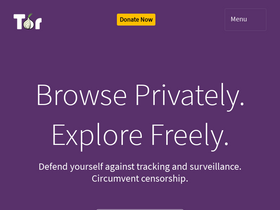The Dark Web, a hidden and unindexed part of the internet, is often associated with illegal activities and a sense of anonymity. However, beneath the surface, it also plays a crucial role in supporting decentralized communities and networks. These communities are distinct from the mainstream, centralized platforms that dominate the surface web, offering a unique space for individuals to communicate, share ideas, and collaborate beyond the reach of traditional surveillance and censorship. One of the primary reasons the Dark Web is conducive to decentralized networks is its inherent focus on anonymity and privacy. Services like Tor, which enable access to the Dark Web, use advanced encryption techniques to hide users’ identities and locations. This anonymity is crucial for people living under oppressive regimes or in environments where freedom of speech is restricted. For example, journalists, whistleblowers, and activists can use the Dark Web to share sensitive information, organize protests, and speak out against governmental abuse without fear of reprisal.

The ability to communicate in this way fosters decentralized networks where power is not concentrated in the hands of a few authorities. Moreover, the tordex search Dark Web provides a platform for a range of communities that might be marginalized or excluded from mainstream discourse. It allows individuals to create their own digital spaces, away from corporate interests and government regulation. This decentralization also gives rise to alternative marketplaces, forums, and social networks that prioritize privacy, data security, and free speech. These spaces thrive on user-driven content and often focus on topics that are not always welcome on traditional platforms such as alternative medicine, political dissent, or digital privacy advocacy. A key factor that supports these decentralized networks is the use of cryptocurrency, particularly Bitcoin and other blockchain-based tokens, which are commonly exchanged on the Dark Web. Cryptocurrencies allow transactions to occur without intermediaries, further removing central control from financial systems.
This not only benefits the underground economy but also strengthens the autonomy of decentralized communities by providing a secure and private method of financial exchange. The decentralized nature of the Dark Web also makes it resistant to censorship. In contrast to centralized networks that can be shut down or regulated by governments or corporate entities, the Dark Web’s peer-to-peer architecture makes it much harder to control. For example, even if one server or site is taken offline, others can quickly replace it, ensuring continuity and resilience within these networks. This decentralized structure allows individuals and communities to share information, access resources, and collaborate without fear of intervention. While the Dark Web does indeed harbor illegal activities, its potential as a facilitator of decentralized networks that prioritize privacy, free expression, and secure communication cannot be overlooked. It provides an alternative to the monopolized, surveilled, and increasingly censored spaces of the surface web, giving rise to a new way of organizing and interacting online that transcends traditional boundaries and controls.

